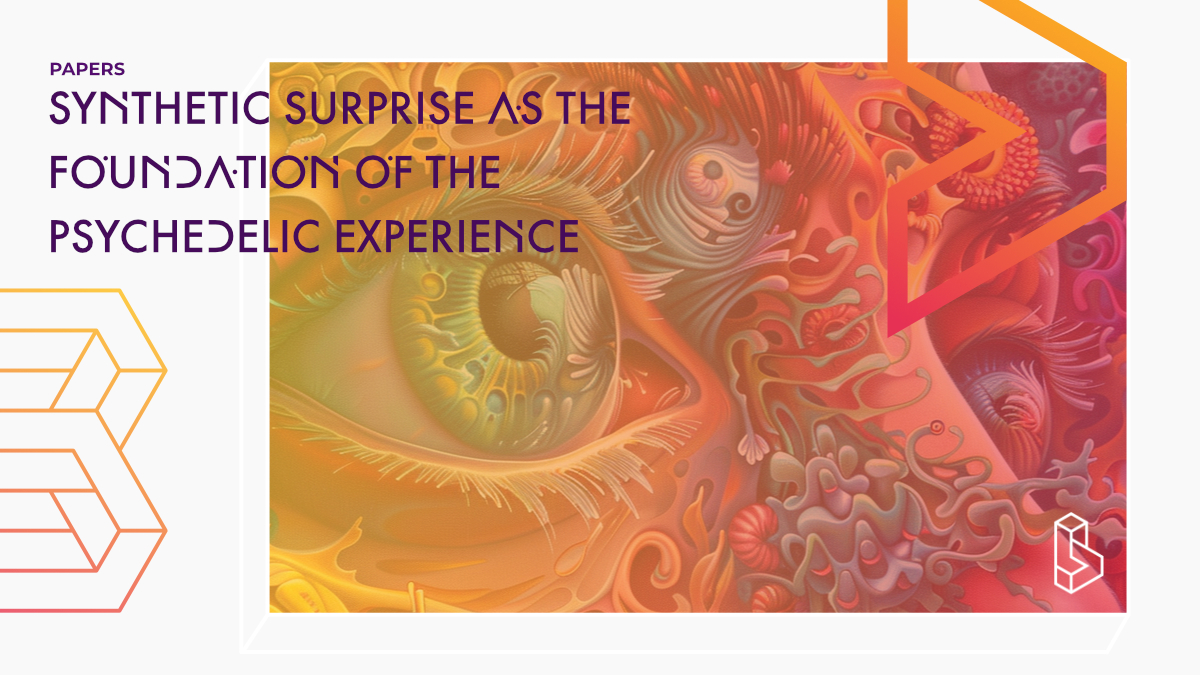This hypothesis paper (2024) proposes that psychedelic agents like LSD and psilocybin induce altered states of consciousness by activating the 5-HT2A receptor system, leading to a state of “synthetic surprise.” This concept is based on recent understandings of serotonin’s role in signalling surprise and is framed within the predictive coding framework, where surprise is seen as a mismatch between expectations and sensory input. The paper suggests that psychedelics disrupt maladaptive patterns by dynamically interacting with top-down expectations and sensory data, with implications for their clinical use, particularly emphasizing their ability to induce surprise to promote therapeutic effects.
Abstract of Synthetic surprise as the foundation of the psychedelic experience
“Psychedelic agents, such as LSD and psilocybin, induce marked alterations in consciousness via activation of the 5-HT2A receptor (5-HT2ARs). We hypothesize that psychedelics enforce a state of synthetic surprise through the biased activation of the 5-HTRs system. This idea is informed by recent insights into the role of 5-HT in signaling surprise. The effects on consciousness, explained by the cognitive penetrability of perception, can be described within the predictive coding framework where surprise corresponds to prediction error, the mismatch between predictions and actual sensory input. Crucially, the precision afforded to the prediction error determines its effect on priors, enabling a dynamic interaction between top-down expectations and incoming sensory data. By integrating recent findings on predictive coding circuitry and 5-HT2ARs transcriptomic data, we propose a biological implementation with emphasis on the role of inhibitory interneurons. Implications arise for the clinical use of psychedelics, which may rely primarily on their inherent capacity to induce surprise in order to disrupt maladaptive patterns.”
Authors: Roberto De Filippo & Dietmar Schmitz
Summary of Synthetic surprise as the foundation of the psychedelic experience
The article proposes that psychedelics exert their influence by inducing a state of synthetic surprise achieved through artificial generation of prediction errors. This is based on the proposed role of serotonin (5-HT) in signaling prediction errors and uncertainty.
The role of 5-HT in predictive coding and uncertainty
5-HT participates in regulating many processes like mood, sleep, appetite and decision making. It projects extensively across brain regions. The article reviews evidence that 5-HT responds to unsigned violations of expectations contrasting dopamine’s response based on valence. 5-HT has also been linked to encoding unexpected uncertainty.
Find this paper
Synthetic surprise as the foundation of the psychedelic experience
https://doi.org/10.1016%2Fj.neubiorev.2024.105538
Open Access | Google Scholar | Backup | 🕊
Cite this paper (APA)
De Filippo, R., & Schmitz, D. (2024). Synthetic surprise as the foundation of the psychedelic experience. Neuroscience & Biobehavioral Reviews, 105538.
Study details
Compounds studied
LSD
Psilocybin

